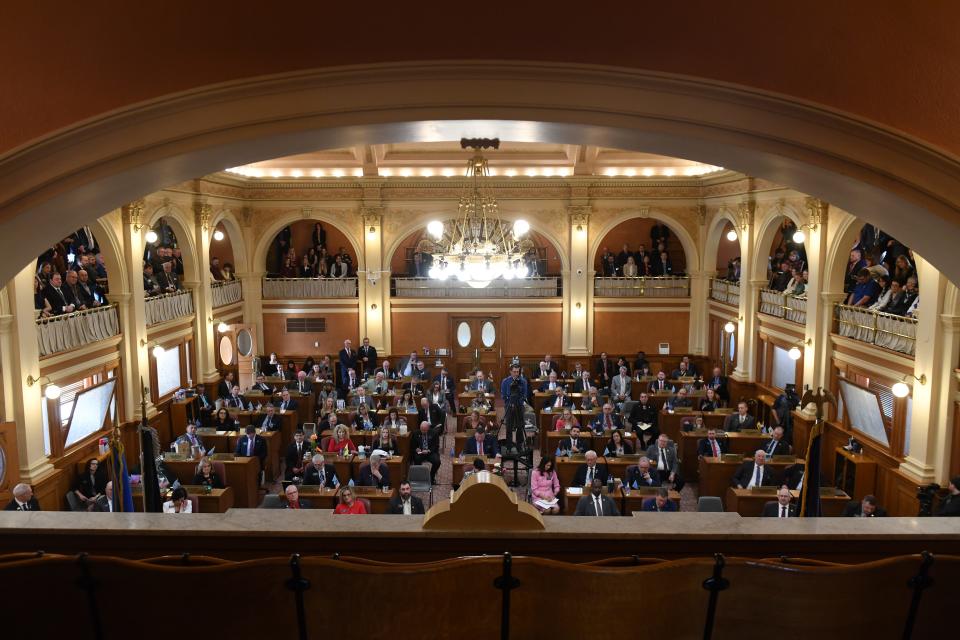The clemency process for prisoners may change if Gov. Noem signs new bill
PIERRE — A bill to restrict the amount of time a person incarcerated can apply for clemency has passed the House and will now head to Gov. Kristi Noem’s desk after a 63-6 vote Thursday.

SB 9 changes the time a person can apply for clemency from once every year to once every four years. Previously, in a Senate committee, the bill had been amended to a time period of one to four years but that was struck during a full Senate hearing in late January and the bill returned to its original intent.
Clemency, an act of power granted by the governor, can help cut down a person’s time of incarceration. The person in prison must make a clemency application to the Board of Pardons and Paroles, and then, the board recommends the application to the governor. Sometimes, though, the governor can make their own decision on who to grant sentence commutations to.
Rep. Rocky Blaire, R-Ideal, who sponsored the bill on the House side said that the new four-year time period would give victim's families peace of mind. When a prisoner applies for commutation and a hearing is held, the victim's family may appear to speak either for or against the application.
“[Victim families] had no idea that those commutation hearings would take place so often. You just recover from a hearing and prepare yourself for the next one,” he said. “It’s a tortuous feeling to never get a break from this. ...Life without parole should mean something in South Dakota.”
During the bill's House committee hearing Wednesday, there were two attempts to amend the bill to include time periods of one to four years, similar to what happened in the Senate committee, and to include time periods of two to four years.
More: South Dakota lawmakers want to change the state's process for how inmates can apply for clemency
Each of those amendments failed.
Members of the Board of Pardons and Paroles did not testify to the bill on Wednesday. Previously, board members had testified during the Senate hearing and recommended the one- to four-year clemency application period.
Rep. Kadyn Wittman, D-Sioux Falls, said in her arguments against SB 9 that she worried the new clemency application time period would reduce morale in the state’s prisons and would strip the Board of Pardons and Paroles of its power.
“I think it is deeply offensive to members of our Board of Parole and Pardons and it insinuates that they are not able to fully understand the nuances of the individuals that sit before them,” she said, noting she is a frequent volunteer at the State Penitentiary. “I have concerns that this ties the hands of our Board of Parole and Pardons.”
Blaire reiterated the bill didn’t take away power from the Board of Pardons and Paroles, but instead offered victim's families assurances that the person convicted of harming their loved one would face the full extent of their punishment.
This article originally appeared on Sioux Falls Argus Leader: Clemency process in SD in hands of Gov. Kristi Noem

